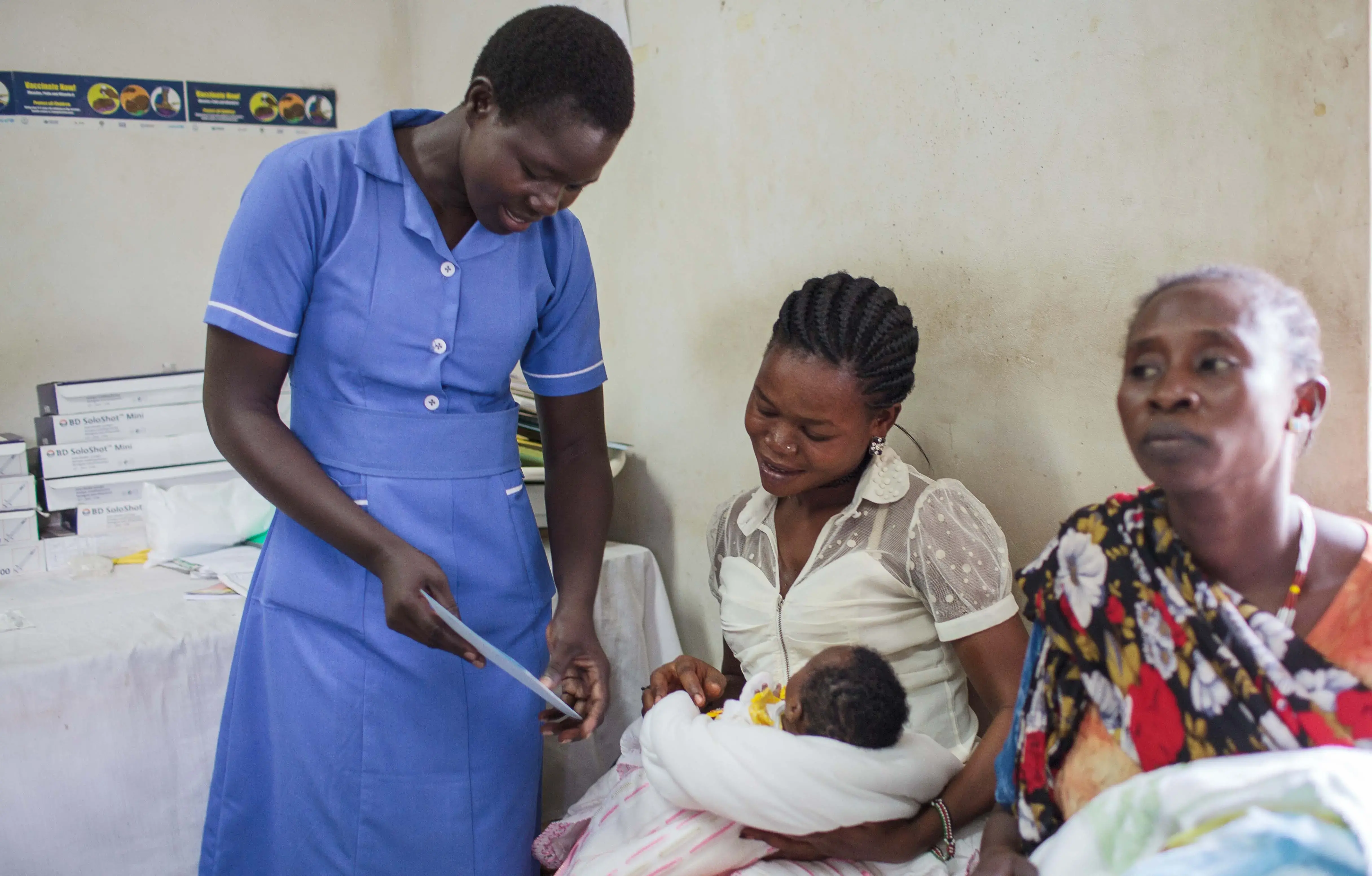South Sudan is a vulnerable country with some of the worst social indicators globally, particularly for women and girls. The maternal mortality ratio is estimated at 1,150 per 100,000 live births (United Nations estimates, 2017), and the United Nations Cooperation Framework report for 2020 noted that only 19 per cent of births were attended by skilled health personnel, with a high rate of home deliveries (87 per cent). Emergency obstetric care services remain limited, with only 40 per cent of health facilities functional and service delivery being largely provided by international organizations. The poor health indicators are due to several factors, including the weak and underfunded healthcare system, with less than 2 per cent of the annual budget allocated to health; weak health policy implementation, severe capacity gaps with respect to human resources for health, notable for physicians (1 doctor per 65,574 persons) and midwives (1 per 39,088 persons), and lack of sustained availability of essential lifesaving reproductive health commodities including critical drugs for maternal and newborn survival due to malfunctional and vertical supply chain management system in the country.
.
The United Nations Population Fund (UNFPA) is working towards a target of increasing skilled birth attendance from 19 percent to 35 percent by 2030 with the South Sudan Investment Case for ending preventable maternal deaths highlights the potential to save over 5,500 maternal lives by 2030, with a 50 per cent increase in effective coverage of high-impact interventions, enabled by sustainable financing of US$318 million in the Decade of Action. In this regard, the UNFP South Sudan programme focuses on multiple strategies that address the root causes of maternal mortality and improve access to high-quality maternal health services.
UNFPA Response:
- Strengthening the training and deployment of human resources for maternal and newborn health is a key priority of the Government of South Sudan and one of the critical areas of support for UNFPA. The UNFPA collaborates closely with the Ministry of Health and other partners to build the capacity of the health sciences training institutions, support the development and ongoing reviews of training curricula, supporting continuous professional development and learning for essential health workers, training national tutors, and ensuring that the most current evidence- based practices are incorporated into the training programmes.
- To build local capacity and improve the quality of health care services, UNFPA has also established partnerships with health professional organizations/associations including the South Sudan Nurses and Midwives Association and the Association of Obstetricians and Gynecologists. Through these partnerships, UNFPA has been able to provide more support for the provision of quality maternal health services through community-based interventions, mobile and static health facilities.
- Together with other key partners, UNFPA is supporting the strengthening of the Maternal Perinatal Death Surveillance and Response (MPDSR) systems in the country. This will help to ensure that each maternal and perinatal deaths are thoroughly investigated and that recommendations to prevent future deaths are implemented. UNFPA is currently supporting the development of protocols and guidelines for conducting maternal and perinatal death reviews, the establishment and capacity building of maternal and perinatal death review committees at health facility level, training health professionals on conducting reviews, and disseminating findings and recommendations.
- UNFPA is working to increase access to maternal health services in South Sudan. This includes supporting the provision of essential maternal health commodities, such as contraceptives and essential medicines. UNFPA works to ensure that reproductive health commodity security and ‘last mile’ assurance through partnerships, innovation, and digitalization.
- UNFPA is also collaborating with youth and women-led organizations to promote and ensure all age groups are reached with information and messages on Sexual Reproductive Health. Support is also provided for social, and behavior change communication activities, including working with Boma Health Initiative to mobilise support for increased use of reproductive health and family planning services.
- Strengthening the enabling environment for maternal health, through supporting the development and revision where necessary of key reproductive health policies, strategies and legal frameworks including the RH policy and RMNCAH strategy, the nursing and midwifery regulatory framework and bill, and supporting national and sub-national SRH coordination so as to optimize the use of resources for maternal health.





